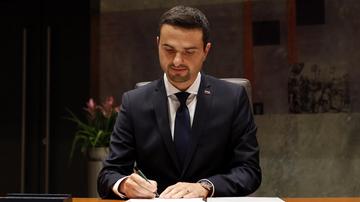
In Slovenia, it is all about creating some kind of "state of emergency", which is especially intensifying during the negotiations for the level of a lump sum, on which municipalities demand only what is actually due to them under the law and the state is trying to achieve a lower amount. "We need to ask ourselves why. Because political parties are losing power at the local level, and that is why strong parties are pressuring with data, which are not placed in the right context and because of that, it creates the impression that having 212 municipalities really is problematic," explained the expert from the Faculty of Social Sciences Simona Kukovič.
Slovenia uses 6 percent for municipalities, the figure form 2015 is 5.69 percent of GDP, therefore, the cost for all municipalities, all the salaries of mayors and other employees ... etc. If we compare it with the European average, we are far behind and not even close to the middle of the scale, which is a real disappointment. Other European countries give more money to the municipal level. After all, our mayors do not have very high salaries, even though this is repeatedly emphasized in Slovenia – what a terrible cost they are, she added.
Local elections are fast approaching, and people will select the new 212 mayors, who are, according to Slovenian legislation, the second most powerful in the European Union (EU), right after the French. However, without the autonomous financing of municipalities, these powers cannot be implemented and are merely "paper tigers", which are too often unaware of their power, also emphasized Simona Kukovič.

























































